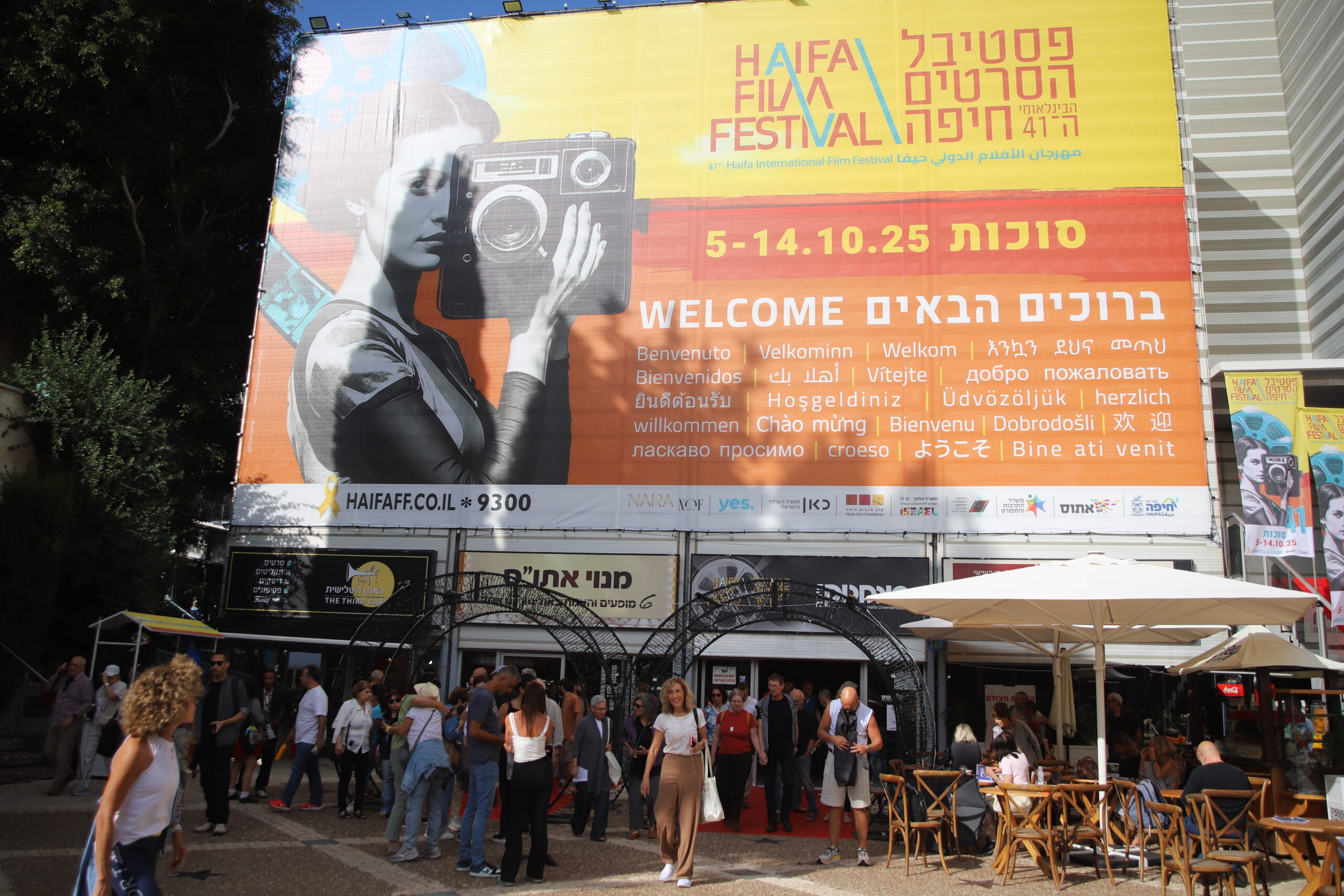Most people will look at this giant billboard and think: film glamour, red carpets, celebrities, culture. And sure, all of that is true—the Haifa International Film Festival is Israel’s longest-running film event, now in its 41st year, pulling in audiences from around the world. But if you step back and tilt your head a bit, there’s another story hiding in plain sight.

The image on the banner isn’t just a stylish retro photograph of a woman holding a camera. It feels like a subtle echo of resilience. Two years after October 7, when Israel was rocked by massacre and trauma, this festival takes place again during Sukkot, a holiday that itself embodies fragility and shelter. A film festival becomes more than just screenings; it turns into a declaration that life, art, and storytelling go on despite everything. The woman with the camera seems to be staring straight through the lens not at the films, but at us—the viewers, the citizens, the survivors—saying: document, remember, continue.
And then there’s the welcome text, printed in over twenty languages. It’s almost over the top—Italian, Turkish, Vietnamese, Welsh, Chinese, Arabic, and more—spilling across the banner like a global chorus. It’s an unspoken reminder that cinema, unlike politics, doesn’t recognize hard borders. Here, in a port city that has always been a mosaic of cultures, that multilingual greeting carries extra weight: a message that despite conflict, walls, and war, Haifa still insists on being open to the world.
So while you can easily frame this as another glamorous film festival with screenings, panels, and coffee chatter under parasols, the unexpected angle is this: the Haifa Film Festival 2025 is really about persistence. About keeping a space alive for dialogue, memory, and imagination, even when everything else seems fragile. A camera on a billboard, a crowd milling around on a sunny afternoon, and the stubborn belief that stories still matter.
Leave a Reply